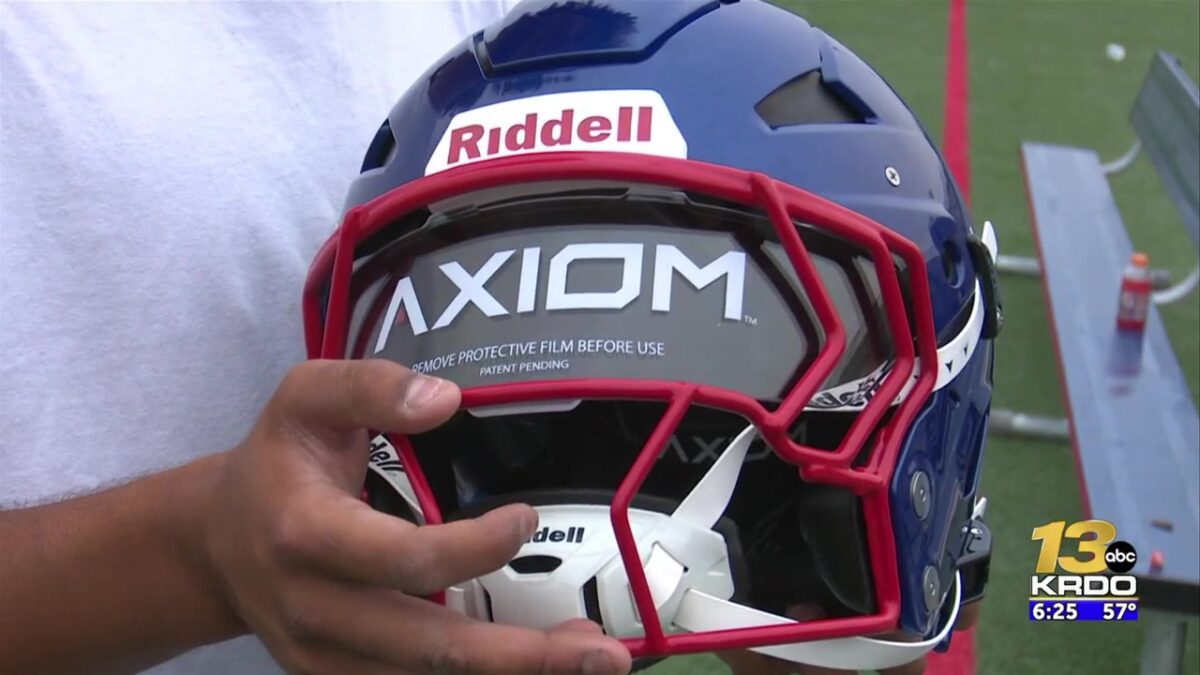The Fountain Fort Carson football team shows off their new helmets

Rob Namnoum
The Fountain Fort Carson football team is getting ready. They can’t hit the field yet but they can hit the weight room. When they do take the field, several players will be wearing sleek new helmets, “It almost looks futuristic. Like a spaceship on your head,” says Myren Johnson.
The helmets are part of the Broncos “All in, All Covered” program. The Broncos are donating more than fifteen thousand helmets to every high school in the state over the next four years. The first round of donations, covering about twenty-five precent of each teams’ players, begin this year and they are top of the line Ridell helmets. The ones the pros wear and Riddell is visiting each school to custom fit the helmets, “They have this app and they like take pictures of your head with this, with this like ski mask over your head and then they send it. in. So this this helmet with all the padding and everything inside of it, it’s fit to only my head. Next year, say, one of our sophomores that already got their head scanned, they would put them in this helmet to make it fit them. Everything feels balanced in the helmet, doesn’t feel heavy in the back, doesn’t feel heavy on top, it almost feels like a a perfect helmet,” says Johnson,
The helmets also include “in sight” technology that helps track head and neck injuries. Each school will get a free four year subscription, “These helmets, it’s a lot less concussion protocol with the the different gadgets and different things they use and different padding that they have for this helmet,” says Johnson.
There are still some things to be ironed out long term. If reconditioned properly, helmets can last up to ten years but the cost and efficiency of reconditioning of the helmets for each school will vary. Something Fountain Fort Carson head coach Jake Novotny would like to see addressed to maximize the program’s impact, “What’s the future after the four years? How do we make it sustainable, affordable? Maybe there is a buy-in program where we get them at half off or whatever, if they can’t flip the bill down the road. And I don’t think we should expect them to. Now we have an expectation with our communities that it’s gonna be a different way. That’s the one thing for me. I think we’ve got to sit down and figure out what that looks like,” says Novonty.